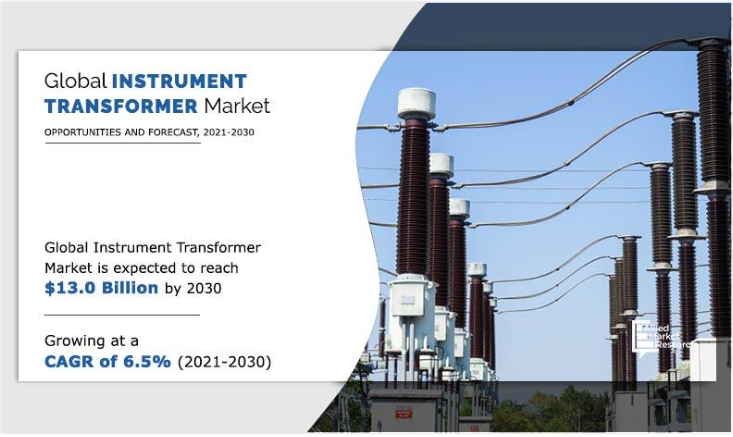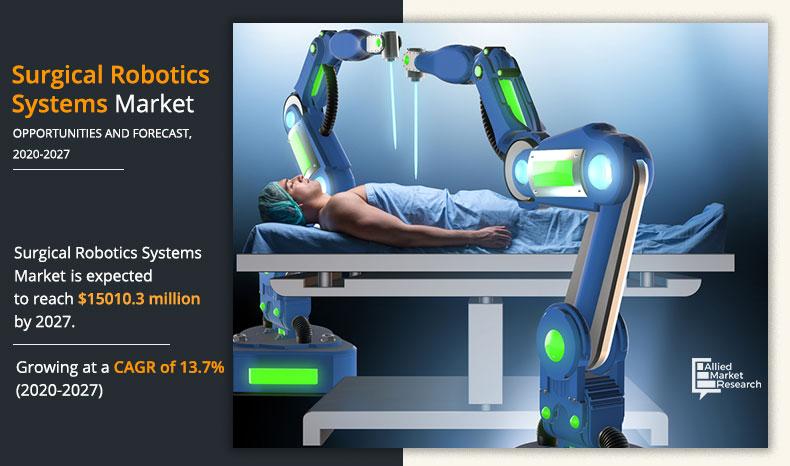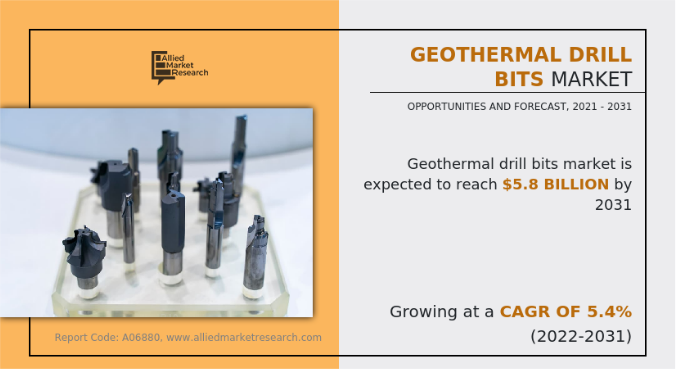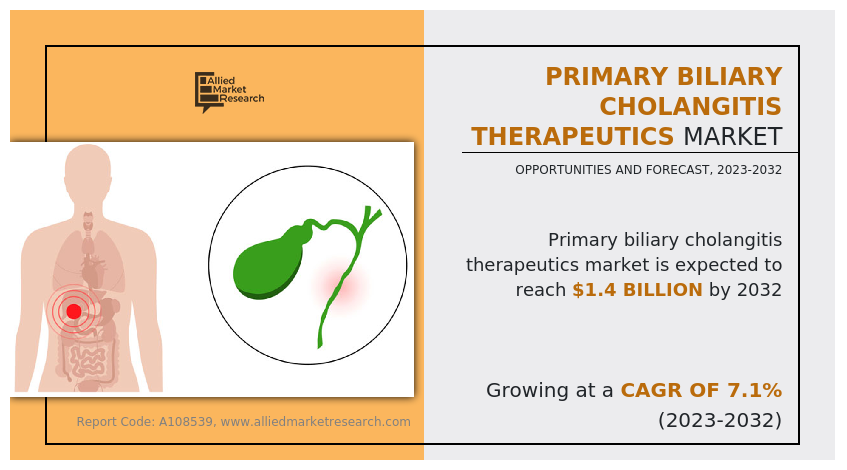The excitation systems market is anticipated to witness considerable growth during the forecast period. This is attributed to factors such as rise in demand for synchronous machines from various end use industries. In addition, rise in investment towards power infrastructure projects fuels the growth of the excitation systems market. However, complicated design and disadvantages of the systems are restraining the growth of the excitation systems market globally. Conversely, rapid growth of the renewable energy industry is anticipated to provide potential excitation systems market opportunities in the upcoming years.
The excitation systems market size was valued at $2.1 billion in 2020, and is projected to reach $3.4 billion by 2030, growing at a CAGR of 4.6% from 2021 to 2030. The system which provides DC field current to the synchronous machine for starting their operation is known as excitation system. Excitation systems generally consists of elements such as signal sensing or processing circuits, electronic amplifiers, power rectifiers, voltage regulators, close loop control circuits, and others. Modern excitation systems also consist of SCADA integration, diagnostics functions, protection functions, and others to improve the stability of synchronous machine and thereby power system network. Excitation systems are used in synchronous machines such as synchronous generators and synchronous motors.
Get a PDF brochure for Industrial Insights and Business Intelligence @ https://www.alliedmarketresearch.com/request-sample/11159
Significant development of the end-use industries such as oil & gas, power, mining, chemicals, pulp & paper, and others is fueling the demand for synchronous machines which in turn is expected to fuel the growth of the excitation systems market. This is due to rise in demand for reactive power to compensate lagging power factor created by inductive loads in the abovementioned industries. In addition, increase in demand for excitation systems in synchronous machines for grid stabilization applications from electric utilities such as power generation plants, transmission, distribution, and other utilities in developing economies is driving the growth of the market, globally. However, the key factor hampering the growth of the global market is design of complicated excitation systems which is resulted in difficulties in maintenance activities.
Depending on the type, the static segment held the highest market share of about 68.3% in 2020, and is expected to maintain its dominance during the excitation systems market forecast period. This is owing to various advantages of static excitation systems such as good reliability, operation flexibility, excellent system response, small size, lower losses, and high performance which resulted in fueling the demand during the analyzed time frame. Moreover, rise in demand for electricity from developing economies resulted in increase in investment toward the power generation, transmission, and distribution infrastructure which in turn is expected to fuel the growth of the excitation systems market from 2021 to 2030.
On the basis of controller type, the digital segment holds the largest share, in terms of revenue, and is expected to maintain its dominance during the forecast period. This growth is attributed to rise in demand for excitation systems to provide reliable and stable operation of synchronous machines such as synchronous generator and synchronous motor. In addition, rise in research &development activities toward improving digital controllers for its use in excitation systems is anticipated to fuel the growth of the market during the analyzed timeframe.
On the basis of application, the synchronous generator segment holds the largest share, in terms of revenue, and is expected to maintain its dominance during the forecast period. This growth is attributed to rise in demand for synchronous generator from various power plants including nuclear, thermal, wind &hydropower and industrial applications. In addition, rise in usage of synchronous generator from constant speed applications and power factor correction applications is anticipated to fuel the growth of the excitation systems market from 2021 to 2030.
Enquiry Before Buying: https://www.alliedmarketresearch.com/purchase-enquiry/11159
On the basis of end user, the power generation segment holds the largest share, in terms of revenue, and is expected to grow at a CAGR of 74.6%. This is owing to rise in demand for electricity from developing and developed economies is expected to fuel the growth of power generation sector resulted in increased demand for synchronous machines. In addition, rise in energy demand along with cleaner generation of electricity is expected to fuel the growth of the renewable power generation segment, thereby driving the growth of the excitation systems market in the coming years.
On the basis of region, the market is analyzed across four major regions such as North America, Europe, Asia-Pacific, and LAMEA. Asia-Pacific garnered the dominant share in 2020, and is anticipated to maintain this dominance in excitation systems market trend during the forecast period. This is attributed to the presence of key players and huge consumer base in the region.
In addition, rapid expansion of the renewable energy sector, rise in investment toward upgradation of aged power infrastructure, and rapid industrialization in the region is further anticipated to fuel the growth of the market in the upcoming years.
The global excitation systems market analysis covers in-depth information of the major excitation systems industry participants. The key players operating and profiled in the report include ABB, Andritz AG, Basler Electric Company, Fuji Electric Co., Ltd., General Electric, Mitsubishi Electric Corporation, Siemens AG, Tenel, s.r.o., Voith GmbH & Co. KGaA, and WEG Group.
Other players operating in the value chain of the global excitation systems market are Nidec Corporation, Melrose Industries, Amtech Power, Reivax, and others.
COVID-19 impact on the market
Lockdown imposed due to the outbreak of COVID-19 pandemic resulted in temporary ban on import & export and manufacturing & processing activities across various industries and electrical utilities, which decreased the demand for excitation systems from these consumers. In addition, halt in building & construction of new electric utility infrastructures, renewable power plants, grid network, and other power plants, owing to unavailability of workers and increase in demand–supply gap are projected to hamper the excitation systems market growth during the pandemic period. This resulted in decline in market growth in the second, third, and fourth quarters of 2020. However, the market is expected to recover by the first quarter of 2021, as COVID-19 vaccination has begun in various economies across the globe, which is expected to improve the global economy.
Procure Complete Report @ https://www.alliedmarketresearch.com/checkout-final/ed8abe2390a0623684abe67c3b59e94e
Key Findings Of The Study
- In 2020, the static segment accounted for about 68.3% of the share in the global excitation systems market, and is expected to maintain its dominance till the end of the forecast period.
- In 2020, the digital segment accounted for 64.9% excitation systems market share in the year 2020, and is anticipated to grow at a rate of 5.0% in terms of revenue, increasing its share in the global excitation systems market.
- Synchronous motor is the fastest-growing application segment in the global excitation systems market, expected to grow at a CAGR of 5.0% during 2021–2030.
- Other industrial segment is expected to grow at the fastest rate, registering a CAGR of 5.6%, throughout the forecast period.
- In 2020, Asia-Pacific region dominated the global excitation systems market with more than 35.2% of the share, in terms of revenue.
About Us
Allied Market Research (AMR) is a full-service market research and business-consulting wing of Allied Analytics LLP based in Portland, Oregon. Allied Market Research provides global enterprises as well as medium and small businesses with unmatched quality “Market Research Reports” and “Business Intelligence Solutions.” AMR has a targeted view to provide business insights and consulting to assist its clients to make strategic business decisions and achieve sustainable growth in their respective market domains.
Pawan Kumar, the CEO of Allied Market Research, is leading the organization toward providing high-quality data and insights. We are in professional corporate relations with various companies and this helps us in digging out market data that helps us generate accurate research data tables and confirms the utmost accuracy in our market forecasting. Each and every data presented in the reports published by us is extracted through primary interviews with top officials from leading companies of the domain concerned. Our secondary data procurement methodology includes deep online and offline research and discussion with knowledgeable professionals and analysts in the industry.
Contact:
David Correa
5933 NE Win Sivers Drive
#205, Portland, OR 97220
United States
USA/Canada (Toll-Free):
+1-800-792-5285, +1-503-894-6022
UK: +44-845-528-1300
Hong Kong: +852-301-84916
India (Pune): +91-20-66346060
help@alliedmarketresearch.com
Web: www.alliedmarketresearch.com
Allied Market Research Blog: https://blog.alliedmarketresearch.com
Follow Us on | Facebook | LinkedIn | YouTube |






